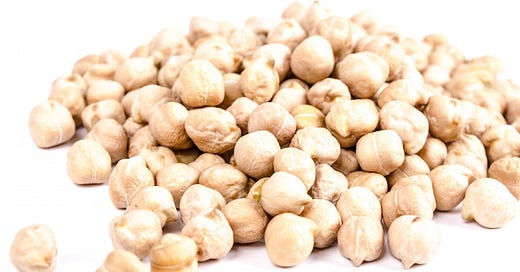Dear Diabetes Buster Community,
Welcome back to another informative edition of the Diabetes Buster newsletter! I'm Asunta Simoloka, your host, and today we'll address a crucial question: what protein should a diabetic eat? In this article, we'll explore two plant-based protein sources that are healthier than meat, offering valuable insights to help you make informed dietary choices.
Our ultimate goal within the Diabetes Buster community is to manage diabetes in a way that promotes healing. It's important to evaluate whether our methods of controlling blood sugar are truly supporting our well-being or potentially causing further health complications. Surprisingly, some approaches that control blood sugar can also have adverse effects on our overall health.
Now, let's dive into the topic at hand. While protein is crucial for optimal nutrition, it's equally important to select healthy sources. Merely consuming protein-rich foods without considering their impact on our well-being can be counterproductive.
That's why we recommend minimizing our consumption of meat as much as possible. It's widely known that a high intake of meat is associated with an increased risk of various diseases, including heart disease, diabetes, cancer, arthritis, and high blood pressure. Opting for plant-based proteins, such as legumes and other whole foods, offers a healthier alternative. Let's explore the advantages of plant protein over meat.
First and foremost, whole plant-based protein sources promote good gut health by maintaining a healthy balance of gut bacteria. This is particularly beneficial for individuals with diabetes, as poor gut health plays a significant role in the development of the disease. By improving gut health, we can effectively control blood sugar levels, promoting healing and addressing diabetes-related health issues, including heart health, immune response, and memory function.
Additionally, choosing plant-based sources of protein helps limit the intake of animal-based saturated fats, which are linked to heart disease. Plant proteins contribute to balanced cholesterol levels due to their fiber and antioxidant content. These benefits are crucial for maintaining a healthy heart while meeting the body's protein requirements. Considering that heart disease is a top health priority for people with diabetes, these advantages are invaluable.
Clearly, opting for whole plant-based foods as sources of protein offers a wide range of benefits, including addressing the underlying disorders of diabetes, controlling blood sugar in a healing manner, and minimizing diabetes-related health problems.
In contrast, relying on meat for protein not only fails to provide these benefits but also exacerbates the root causes of diabetes, contributes to blood sugar control that is detrimental to health, and increases the likelihood of diabetes-related health problems, particularly heart disease, impaired memory function, and a weakened immune system.
Now, let's explore two specific plant-based protein sources that you can incorporate into your meals to satisfy your protein needs.
1. Chickpeas (Garbanzo Beans): Chickpeas are not only versatile and delicious, but they also offer a complete protein source. You can incorporate them into various dishes, such as salads, stews, curries, vegan meatballs, and the ever-popular hummus. Hummus, made from chickpeas and sesame seeds, provides a convenient way to obtain a complete and healthy protein. If you're looking to replace meat with healthier alternatives, chickpeas are an excellent starting point. It's essential to consume chickpeas with their edible skins intact to preserve their nutritional qualities.
2. Mung Beans: Another protein-rich legume to consider is mung beans. Adding mung beans to your meals alongside other legumes provides a diverse range of nutrients. Mung beans possess remarkable antimicrobial properties
and are beneficial for maintaining optimal gut health. They can be sprouted, cooked, or blended into soups, stews, and spreads. By incorporating mung beans into your diet, you'll be embracing a fantastic source of plant protein with exceptional health benefits.
By incorporating these plant-based protein sources into your meals, you'll not only meet your protein needs but also promote better health and manage your diabetes more effectively.
Remember, our goal at Diabetes Buster is to support your journey towards optimal health. By selecting healthier sources of protein and embracing a whole plant foods approach, you'll take a significant step towards managing your diabetes and improving your overall well-being.
I appreciate your readership and invite you to explore The Diabetes Buster podcast for more valuable insights on managing diabetes and promoting healing in the body. Follow the links below to stay updated on podcast episodes.
Wishing you a vibrant and healthy life!
Yours in health,
Asunta Simoloka.




